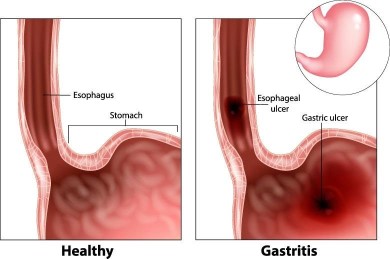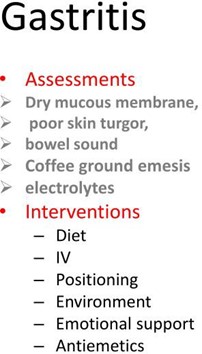A patient who is hospitalized with abdominal pain and watery, incontinent diarrhea is diagnosed with Clostridium difficile. In planning care for the patient, the nurse will:
order a diet with no dairy products for the patient.
explain to the patient why antibiotics are not being used.
place the patient in a private room with contact isolation.
Teach the patient about proper foal handling and storage.
The Correct Answer is C
Clostridium difficile is a highly contagious bacteria that can spread easily from person to person. The patient should be placed in a private room to prevent the spread of the infection to other patients. Contact isolation precautions should also be implemented, which involves wearing gloves and a gown when entering the patient's room, as well as washing hands thoroughly after leaving the room.
Options a and b are not directly related to the care of a patient with Clostridium difficile. Option d is also not directly related, although proper food handling and storage can help prevent the spread of other types of infections.


Nursing Test Bank
Naxlex Comprehensive Predictor Exams
Related Questions
Correct Answer is A
Explanation
acromegaly typically causes an enlargement of the hands and feet. The nurse can inquire if the patient has noticed any changes in shoe size, as this may indicate abnormal growth.
"Are you experiencing tremors or anxiety" is not directly related to acromegaly, and although anxiety can be associated with some medical conditions, it is not a typical symptom of acromegaly.
"Is there any family history of acromegaly?" is also a relevant question, as acromegaly can be caused by a genetic disorder. If the patient has a family history of the condition, this may increase their risk of developing it.
"Have you had a recent head injury?" is not specifically related to acromegaly, although head trauma can cause a variety of medical conditions.
Overall, option a. is the most relevant question to ask a patient with suspected acromegaly.


Correct Answer is A
Explanation
Clients with acute gastritis are recommended to eat smaller, frequent meals instead of three large meals. This helps to reduce the workload on the digestive system and allows the stomach to heal. Therefore, option A is not a suitable nursing intervention for a client with acute gastritis.
Options b, c, and d are all appropriate nursing interventions for a client with acute gastritis. Observing stool characteristics can help to identify any bleeding or inflammation in the gastrointestinal tract, evaluating intake and output can help to identify any fluid imbalances, and monitoring laboratory reports of electrolytes can help to identify any imbalances that may occur because of vomiting or diarrhea.


Whether you are a student looking to ace your exams or a practicing nurse seeking to enhance your expertise , our nursing education contents will empower you with the confidence and competence to make a difference in the lives of patients and become a respected leader in the healthcare field.
Visit Naxlex, invest in your future and unlock endless possibilities with our unparalleled nursing education contents today
Report Wrong Answer on the Current Question
Do you disagree with the answer? If yes, what is your expected answer? Explain.
Kindly be descriptive with the issue you are facing.
